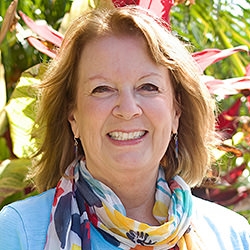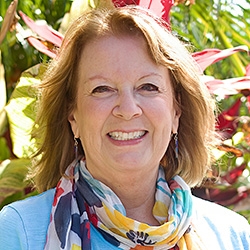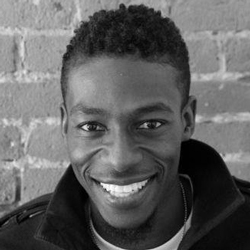

Search Results: race
-
Marshall Rosenberg used to talk about every situation with the same level of joy a child might feel. This may seem impossible at first! But when you focus on all the ways something is hard, you miss out on the full experience and remove your sense of choice. In this video, Mary shares several benefits of positivity and lots of examples along the way.
-
Trainer Tip: If we're deflecting an appreciation or letting it expand our ego, we're missing a chance to truly connect to what's important. A more satisfying way to receive appreciation is to connect to how we've contributed to another person’s life, rather than our own.
-
-
- Unpack interpersonal, internalized, and institutional racism from the lens of NVC consciousness
- Hear and share personal stories and the impacts of racism, power, and privilege
- Learn how to translate “hard to hear" messages into meaningful conversations
- Expand and deepen the conversation of systemic and interpersonal racism
-
Join CNVC Certified Trainer Arnina Kashtan as she explores enemy images to increase your capacity to embrace life more fully. Free yourself from the “us-them” paradigm and experience true compassion for the people whose actions most trouble you.
-
Enjoy listening in as Arnina assists participants in fine tuning what they wish for their futures, and what practices they intend to embrace as the course winds down. She also offers strategies for what they can do if they forget their intended practice, and revisits the importance of untangling Needs from Core Belief.
-
What parts of yourself or others are hard to embrace, understand or even notice? What parts do others have difficulty embracing, understanding or noticing? Why do we condemn, loathe, hate, deny, judge, blame or feel shame around certain needs, feelings and parts of self and/or others? This article talks about the hidden parts of ourselves and others that shapes views and behaviours.
-
Reveal, own and share the inner chatter that plays over and over in your head, in between the words you speak aloud. Arnina Kashtan will help you discover, embrace and open up the places inside that you’ve hidden and judged.
-
What are the most powerful things I can do to build an inspired relationship? I answered the question with romantic relationships in mind; however, I believe the answer below applies to all important relationships.
-
So many of us have a habitual response of trying to eliminate uncertainty and the arrival of what we don't want. Alternatively, we can embrace the irreducible uncertainty of life. This shift from resistance and helplessness to mourning allows acceptance of outcomes, reduction of stress, and opens the door to noticing and appreciating what's present and available amidst challenges.
-
Anger and resentment can signal unmet needs. Through mourning those needs and practicing self-empathy, we may let go of blame, embrace reality, and reclaim responsibility for fulfilling our own needs. This process may lead to emotional transformation through conscious reflection, and a new outlook.
-
Are you eager to translate your vision of a world where everyone’s needs matter into a tangible reality? Do you long to discover your unique role in responding to the challenges of our times? If, so join Miki for 12 sessions that will propel you on your way!
-
When a person of color (A.K.A. a person from the Global Majority, or GM) tells a marginalization story that triggers a defensive response from a white participant in a group, to foster awareness and healing, leaders can address the white person's distress with empathy, highlighting the common dynamic of prioritizing white pain. From there, leaders can offer GM participants opportunity to share their experience and make requests of the group.
-
The notion of "micro-aggressions" may be levied by those in the dominant class - for example white folks may talk about receiving micro-aggressions when a (legitimately) angry BIPOC references them as "white". This shuts down the conversation and feeds a myth that everyone's pain about race is equal. It doesn't foster dialogue that moves us towards a more equitable, compassionate world. Read on for more about the complexity.
-
Listen to Roxy Manning explore the barriers to speaking authentically as powerful voices for change, and practice these needed conversations about the ongoing violence in the streets of America.
-
How do you bring empathy and authenticity to uncomfortable work situations when there are so many layers of difference – especially if your primary reason for working is to feed your family and pay your bills? Listen in as Roxy opens participants' eyes to some of the many layers of difference we all deal with on a daily basis.
-
Listen as Miki works with participants. Topics: how small requests serve interdependence; NVC process vs purpose; how to respond when empathy is used to create distance; coping with verbal aggression, and more!
-
The existing unequal risks and impacts people of certain race, class and identities face in society is magnified in these strenuous times -- especially with things such as illness, financial well being, discrimination, attacks, and death. As responsive NVC practitioners we can stand in solidarity with those who are differentially impacted. Read on for this, and additional ways to spot common pitfalls of doing so.
-
For many people, attempting to connect with others across differences can feel akin to walking through a minefield. With humility, tenderness, and courage, Roxy challenges your perspectives and encourages you to open your heart and mind. Roxy uses concrete examples and visual tools to illustrate complex concepts.
-
Although we are evolutionarily designed for collaborating with others when attending to our basic needs, the weight of the systems and cultural messages we have inherited interfere. Many of us are doubtful that collaboration is possible or effective, and most of us lack both the faith and the skills to live collaboratively, regardless of cultural imperatives. Miki helps us navigate this terrain.

Quick Links
Subscription Preferences
Stay In Touch!
Looking for ways to keep up with NVC Academy news, get special offers, free resources, or words of inspiration? Here are five ways to stay engaged:



















